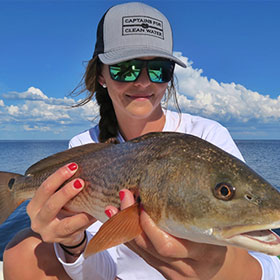How Fish Hatchery Management Supports Conservation
By Alycia Downs
Jan 10, 2019
Learn the benefits of fish hatchery management and how it helps support conservation.
In the early days of American civilization, settlers couldn’t just purchase their meats and produce at the neighborhood market like we do today. They relied on hunting, farming, and fishing in order to feed themselves and their families. Back then, there weren’t harvest limits on fish or size restrictions on how big they could be to keep. Many species were overfished and this led to a quick decline in fish populations. People began to understand the need for conservation in order to protect these valuable resources. Many states in en U.S. sell fishing licenses and use these funds for conservation purposes.
Fish hatcheries were established in 1872 and, today, are found across the United States. Hatcheries are scientific facilities where artificial breeding and hatching can help repopulate endangered fish species and preserve native fish species. With proper fish hatchery management, the fish raised in a hatchery are released back into the wild once they are large enough to survive on their own
Some benefits of a fish hatchery system include:- Provide valuable education, outreach, and research opportunities
- Aid in conservation efforts
- Repopulate native fish species
- Stock ponds and lakes for recreational angler benefit
- Sold for food
The National Fish Hatchery System (NFHS), a program of the U.S. Fish & Wildlife Service, operates over 140 hatcheries across the United States and has resulted in even more national restoration programs. The NFHS collaborates with partners nationwide such as states, landowners, tribes and stakeholders, to create and maintain healthy fish populations. The NFHS is a prime example of effective fish hatchery management.
While fish hatchery management is a critical element of conservation, nothing replaces responsible angling practices. As times change, anglers have become the most active advocates for fish conservation, almost by necessity. In our lifetime, we’ve experienced significant declines in fish populations and in order to protect the resource we so desperately love, we must demonstrate sound practices and teach future generations to do the same.
Read more fishing and conservation tips and be sure to get your fishing license which helps fund conservation programs nationwide.









